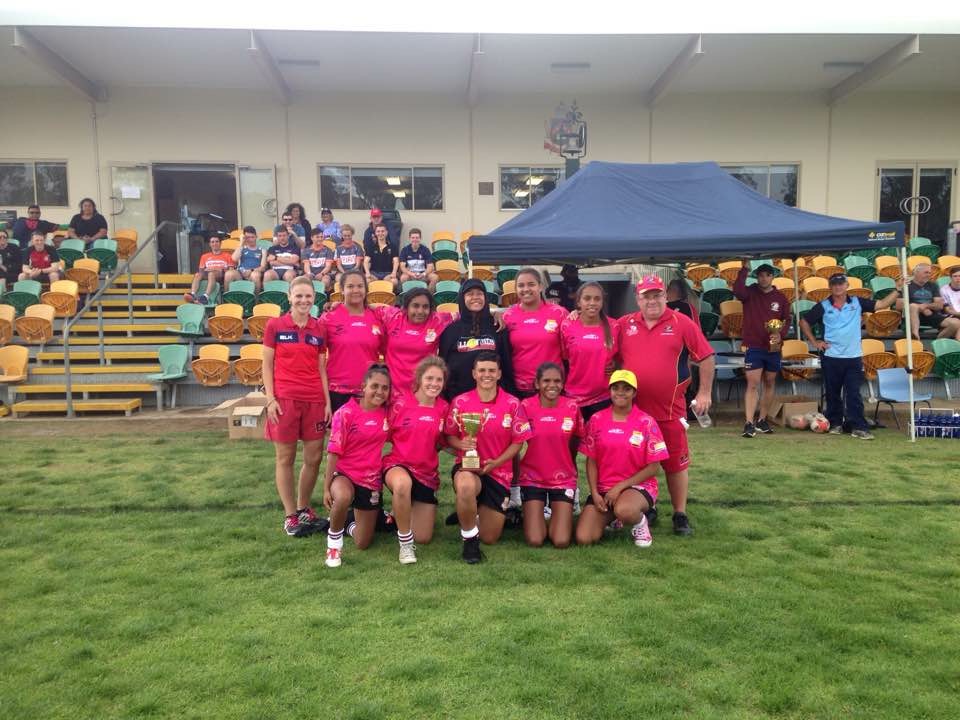Mark Forrester shares how he uses circle practice in his role as rugby coach.
I stood in the doorway of the dressing room ready to meet a newly appointed representative rugby team I was appointed to coach for the upcoming national titles. The team was diverse, members of different clubs and cultures coming together to represent Queensland. There they sat in their familial groups, as far from each other as possible within the confines of the u shaped dressing room bench. Brought together for their skill and character, yet separated by their difference.
I knew what was needed. I pulled out a spare representative jersey and began our first check-in. Each team member was asked to hold the jersey, speak their name, where they are from and what the jersey meant to them before passing it on to the next player. This was the first of many circle conversations that transpired over the next ten weeks of training and title play off.
As a coach I see my role as being in service of the team. I work to create an environment where players build a sense of connection, belonging and comfort to challenge themselves and each other to grow in character and relationship. Above all else the key to forming a winning team is embedding a culture where players pull together, stay in conversation and support each other the opportunity to grow will bring success both for the team and individuals.
I have found the circle provides a forum for players to call each other on matters that challenge their behaviour, give each other feedback and have conversations they wouldn’t normally have. Some examples of these include:
- One of the players was selected for his seniority and experience. In the circle he called everyone on the disconnectedness. He said to the team if we keep doing this we won’t have a hope of winning the title. He put it into the centre for others to consider.
- After a preliminary game the players gathered in circle to check out. They were asked to pick a team mate who they think had gone above and beyond to get the team to their current position, and that they hadn’t said to that person to date. The interesting observation of this exercise was that it wasn’t the ‘big stars’ that got acknowledged. It was the quieter achievers who were recognised. This exercise really strengthened the connection between players and freed these young men up to have conversations they wouldn’t have had normally.
At the beginning of subsequent games the players checked in by passing the jersey or football by stating: What is my role? How will I contribute to our victory today?
And a victory is exactly what this team went on to celebrate.
If I had to identify some of my learnings for bringing circle into a team or group I would say:
- Be aware of your group – get to know them well
- Be very clear in your mind – the reason why your are gathered
- Modify the process to suit the environment e.g. football for talking piece
- Stick at it – it works – but it takes time
- You will notice little cues that it’s working like the players begin ushering each other into circle for half time check in.
I have applied circle practice to coaching at all levels from amateur to elite players. I work with the focus to help players build character, connect to their community of interest and live a culture of respect and cohesion. I have watched people find their leadership through football and carry it into leadership roles in their community and work. Some players have really embraced this practice and taken circle on their own journey with them. They say “if this works at the footy club it might work in my work” and give it a go…
Mark Forrester has been coaching club and representative rugby for 17 years and is a five time premiership winning coach with many years experience at Premier grade level. Mark has a distinguished representative coaching career, most recently winning a national 7’s championship in 2016. Mark’s achievements also include Leading the Queensland Team to wins in the Barraclough Shield, Coaching Queensland against PNG, having an undefeated tenure in the annual City vs Country clash over a seven year period, coached successfully at a Junior Gold Cup and schoolboy level. Mark is actively coaching at the club coordinating the defensive coaching in the 1st grade and open men’s teams as well as a coaching Junior sides and with our junior girls and women’s 7s teams as well as continuing his current representative commitments Mark is completing his qualifications with World Rugby to gain his international accreditation.




